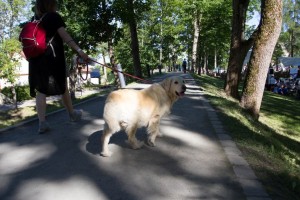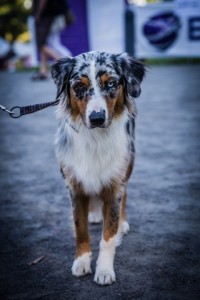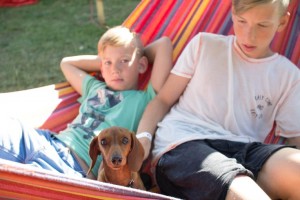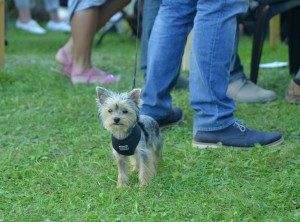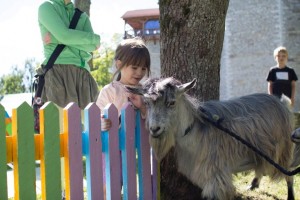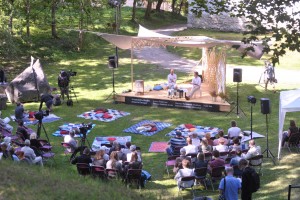During the last twenty-five years, Estonia has made significant strides in terms of economic development and integration with international organizations such as the EU, NATO and the OECD. At the same time, according to the World Happiness Report issued by the United Nations Social Development Network (UNSDN), Estonia ranks 72nd among 156 countries in terms of the average level of happiness.
Estonia is well-known for its liberal economy and open governance, but there is a question to be asked about the extent to which Estonians actively participate in the creation of society and well-being in a broader sense. A case can be made that Estonian society, weighed down by Estonians’ lack of collaboration and involvement in societal affairs, is still looking for its identity and would greatly benefit from the strengthening of opinion culture and level of debate on issues such as integration and tolerance.
What can communities and civil society organizations do in order to stop the trend of Estonians permanently emigrating from Estonia, and to make Estonians wiser, more tolerant, and more inclined towards collaboration? Understanding the origins of the idea and the current role of the Festival of Opinion Culture can help us understand its future potential with regard to the development of Estonian civil society.
Arvamusfestival. Since August 2013, when the first Festival of Opinion Culture took place in Paide, a city located in the center of Estonia, the event has become one of the most significant civil society projects in Estonia. While the first festival featured 50 discussions and 2000 participants, in 2014 these numbers doubled, and the third festival in August 2015 will present more than 200 different discussions and the list of contributors comprises an unprecedentedly high number of organizations and individuals: 200 and 600, respectively. The Festival of Opinion Culture is a venue for discussions and debates on topics that are of significant value to Estonia and the Estonian people. In terms of the topics covered in numerous discussions, the Festival of Opinion Culture is rather comprehensive. The topics vary from migration and national security to Russian-language journalism in Estonia and the future of Estonian schools.
The goal of the festival is to gather together different ideas and points of view and acquire new knowledge that would give momentum to the creation of new civil society organizations and contribute to the development of opinion culture in Estonia.

The origins of Arvamusfestival. The idea of an Estonian own festival of opinion culture was inspired by Almedalen week, a Swedish societal-political festival that takes place on the island of Gotland, as well as SuomiAreena, an analogous event organized by Finns. The Festival of Opinion Culture is a citizens’ initiative, and the founder and one of the key organizers of the Festival of Opinion Culture is Kristi Liiva. The festival has fully relied on volunteer work since the beginning, and the festival is supported by both local and small non-government organizations and some of Estonia’s biggest NGOs such as the Open Estonia Foundation, Estonian Debating Society, and the Estonian Cooperation Assembly. In addition to that, a growing number of political parties, media channels and think tanks are contributing to the event. Since the festival was first held in 2013, part of the funding for the festival has been raised through an Estonian crowdfunding platform Hooandja.
In many ways, the success of the Opinion Culture Festival points to the potential and promise of an individual who has a good idea and a clear plan to implement it. When it comes to Arvamusfestival and Paide as its host city, the deal was a win-win: while a nation-wide festival designed for all Estonians has hardly any better locations than the city that is located in the middle of Estonia, the authorities of Paide were also interested in energizing social life in an area that has been characterized by relative decline over the recent decades. In 2014, Kristi Liiva and mayor of Paide signed a deal by which Paide Vallimägi is the official location of Arvamusfestival at least until the year of 2017. The support of local authorities in Paide has proved important in organizing the event.
The Power of Volunteering. In a 2014 interview, Liiva suggested that she has done a great deal of thinking and talking about the differences between leading a corporate organization and a group of volunteers. Liiva proposes that leading a team of volunteers is “a management master class” – for while any corporative organization has a distinct hierarchy, established patterns of behavior, contracts and relationships, a leader may easily neglect the qualities that matter the most in supervising people: the need to inspire people and motivate them by example, through vision and values. Liiva suggests that this is the case particularly with today’s 25-year-olds, who “are not fixated on labels and hierarchies and driven by material values, but instead value true meaning, vision, and the opportunity to take part in something important, something bigger than themselves.”
Kristi Liiva claims that this kind of support is the most important thing that a manager can offer to the team, and says this is the most valuable and exciting lesson she got from the experience of organizing the first Festival Opinion Culture in Paide. Liiva continues: “One’s main role as a manager is to make sure members of the team are aware of the final goal, the one towards which the whole team is moving, and have enough information to perform their tasks. There is no way we could obligate anyone in a team of volunteers; what we can do, however, is to create an environment and vibe that makes people want to be a part of it – to give them an opportunity to work with topics that are important to them.”
Building Networks. The Festival of Opinion Culture is organized with the help of volunteers. However, many of the heads of certain executive areas relevant to the organization of the festival are experts in their fields. As opposed to some events that are organized by volunteers and put the joy of making at the center of their efforts, the Festival of Opinion culture has a rather elaborate organizational structure, agenda, and means of communication. Everyone can propose ideas for discussions, and based on the specific topics, more broad topic-areas emerge. The Estonian Arvamusfestival encourages all contributing organizations to take care of the logistics of their debates, essentially forcing them – in a positive way, however – to reach out to other people, create contacts and build networks. The experience of organizing the 2014 festival proved that the collaboration between different civil society actors contributed to the creation of social capital.
Arvamusfestival branches out. In 2015, in addition to the main event taking place in Paide, Arvamusfestival had several local events, such as the Pre-Opinion Festival in Narva. Narva is an Estonian city where a considerable part of the population is Russian-speaking, and therefore the discussions took place both in Estonian and in Russian. The organizers suggested that when during the main festival in Paide the topics are broad in their scope and deal with issues that have to do with the entire population of Estonia, the local events provide a venue for discussions on topics most relevant to any given geographic location.
As an improvement compared to the previous years, a small number of discussions at the third Festival of Opinion Culture will use Russian or English as their working language. In addition to that, the relative abundance of different topics has fostered a wider variety of issues, and college students majoring in architecture and city planning have contributed to the creation of special removable platforms and areas to accommodate the increasing number of both discussions and participants. The impact of the success of Arvamusfestival has exceeded Estonian borders, and in 2015, for the first time, Festival Lampa, an equivalent of Estonian Arvamusfestival took place in Latvia.
Networks of people and social capital created by Arvamusfestival provide a basis for more closely-knit communities and a better life. The experience of collaboration and mutual trust created by Arvamusfestival is valuable for the further development of Estonian civil society, and Arvamusfestival as an event demonstrates the importance and promise of volunteering and collaboration.
The text is based on Valdar Liive’s paper “Civil Society and Democracy: the Proposed Impact of the Opinion Culture Festival in the Development of Estonian Civil Society” (2015).
